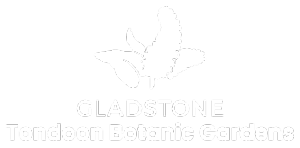Living Here
- Pets and Animals
- Residents
- Report
- Environment
- BackEnvironment
- Air Quality
- Biodiversity
- Biosecurity
- Blue-green algae blooms
- Bushfire Mitigation
- Coasts and Coastal Vegetation
- CoastSnap
- Conservation Programs and Initiatives
- Erosion and Sediment Control
- Feral Animals
- First Nations Fire and Land Officer
- Landfill Gas Abatement
- Mosquitoes
- Pests and Weeds
- Weed Spray Equipment Hire
- Wildlife
- Community Development
- Community Investment
- Services
- Emergencies
Requirement for approval to keep animals (up to four dogs or four cats)
Approval is required to keep three or four dogs, or three or four cats, on an allotment in a designated town, with an area of less than 10,000m2. A Keeping More Than Allowable Animals application must be submitted along with all relevant documentation and a non-refundable application fee.
If an application has been approved to keep four dogs, two cats are still able to be kept on the allotment, and vice versa.
Frequently Asked Questions
A. You (the applicant) must include every address on the Neighbours Consent Form. Even if you do not feel comfortable in approaching any of your neighbours, you are still required to note their address and the reason why you could not obtain a signature/non-objection for that property.
A. You (the applicant) must include every address on the Neighbours Consent Form. Even if you are unable to obtain a signature due to the property not being lived in (house vacant or no dwelling on land) or the property is not a residential property, you are still required to note the address and the reason why you could not obtain a signature/non-objection for that property.
A. A KTMA will not be approved without the property owner’s or body corporate’s (for multi-residential premises) consent/signature. As the application is non-refundable, please be aware that the KMTA will be not approved if lodged. If the property is managed by a Real Estate, include their correspondence approving the additional animal with your application.
A. The KMTA will be placed on hold until the microchip number is supplied to Council. It is a condition that all animals be microchipped for a KMTA to be approved.
A. It is not a requirement that all animals on the KMTA be desexed. However, Council highly recommends that all animals within your possession be desexed as this can prevent your animal from roaming, being territorial, and producing unwanted and unnecessary litters.
A. A simple site plan (or mud map) is required for the application to be processed. It can be a hand-drawn map that indicates the layout of the property detailing existing structures, where the animals are housed, and boundary of all adjoining properties. On your map, include the location of roads, gates, grids and watercourses (creeks, etc) that surround (or go through) the property.
A. The current animals residing at your property must be registered with Council. It is not required for the additional animal to be registered at the beginning of the KMTA process as once approved an invoice will be posted to the applicant for the registration. It is recommended to wait until you receive approval to have a KMTA before registering the additional animal, however, if the additional animal is already registered this will not affect the application process. If the application is refused, then one of the animals (either one of the current or the additional animal) must be rehomed and if already registered with Council, an Animal Registration Form must be completed for a Transfer of Ownership.
A. You will need to seek assistance from a Senior Local Laws Officer at Gladstone Regional Council.
A. Only one applicant per KMTA is permitted. It is recommended that the applicant be the animal owner that is registered with Council. If the animals are owned by different owners, then one of those owners must be selected to be the applicant.
A. No, the permit is only applicable for the animals listed on the approval. If one of these animals becomes deceased, is given away, etc, the permit becomes void and you must submit and pay for another KMTA and start the process from the beginning.
A. No, the permit is only applicable for the property listed on the approval. If you move address, the permit becomes void, and you must submit and pay for another KMTA and start the process from the beginning.
A. If your new residential property is classified as a multi-residential property and has a Property Code of 08 – Building Units or 09 – Group Title, you are only permitted one dog and/or two cats at this property. You will either need to remove the additional animal or apply for a KMTA. Please contact Council to confirm your residential property’s Property Code.
A. You will require a KMTA if your property falls under 10,000m2. If your property is over 10,001m2 then you can have up to four dogs and or two cats without applying for a KMTA.
A. Each KMTA is individually assessed – previous history will be taken into account (if GRC can access this information); however, there is no guarantee that you will be approved even if you were approved previously (in or outside the Gladstone Region).
A. Each KMTA is individually assessed and dependant on the history of the animals, and if Council requires further information from the applicant. Council endeavours to have the KMTA approved within 28 working days.
A. Yes, if by adopting this animal you now have more than the allowed number of animals on your property.
A. Yes, if it is found that you are in breach of Council’s Subordinate Local Law No. 2 (Animal Management) 2011 Schedule 4 Minimum Standards for Keeping Animals, your KMTA can be revoked, and you may be refused future KMTA applications.
A. You do not require a KMTA if the litter is only kept at your premises until they are three months of age. As it is a Queensland Government requirement that dogs and cats aged 12 weeks and over must be registered and microchipped, once the litter animals reach three months of age, they must be removed from your property or you must apply for a KMTA.
Note – you will require a (free) Breeder Supply Number to sell or give any of the litter animals away. Visit the Queensland Government’s Queensland Dog Breeder Register for more information: https://qdbr.daf.qld.gov.au/information/dog-breeders/
Living Here
- Pets and Animals
- Residents
- Report
- Environment
- BackEnvironment
- Air Quality
- Biodiversity
- Biosecurity
- Blue-green algae blooms
- Bushfire Mitigation
- Coasts and Coastal Vegetation
- CoastSnap
- Conservation Programs and Initiatives
- Erosion and Sediment Control
- Feral Animals
- First Nations Fire and Land Officer
- Landfill Gas Abatement
- Mosquitoes
- Pests and Weeds
- Weed Spray Equipment Hire
- Wildlife
- Community Development
- Community Investment
- Services
- Emergencies
Gladstone Regional Council
Connect. Innovate. Diversify.
Get in Touch
Phone
(07) 4970 0700
Opening Hours
8.30am - 5pm Monday to Friday
Social media
Postal Address
PO Box 29, Gladstone Qld 4680
Council Offices
101 Goondoon Street, Gladstone Qld 4680
3 Don Cameron Drive, Calliope Qld 4680
41 Blomfield Street, Miriam Vale Qld 4677
Cnr Wyndham & Hayes Avenues, Boyne Island Qld 4680
Rural Transaction Centres
71 Springs Road, Agnes Water Qld 4677
47 Raglan Street, Mount Larcom Qld 4695
Footer Acknowledgement
Gladstone Regional Council would like to acknowledge the Bailai, the Gurang, the Gooreng Gooreng and the Taribelang Bunda people who are the traditional custodians of this land. Gladstone Regional Council would also like to pay respect to Elders both past, present and emerging, and extend that respect to other Aboriginal and Torres Strait Islander people. Learn more about Council's Reconciliation Action Plan (RAP).
Chat Popup
All content © Gladstone Regional Council. All Rights Reserved.
Back to the top







